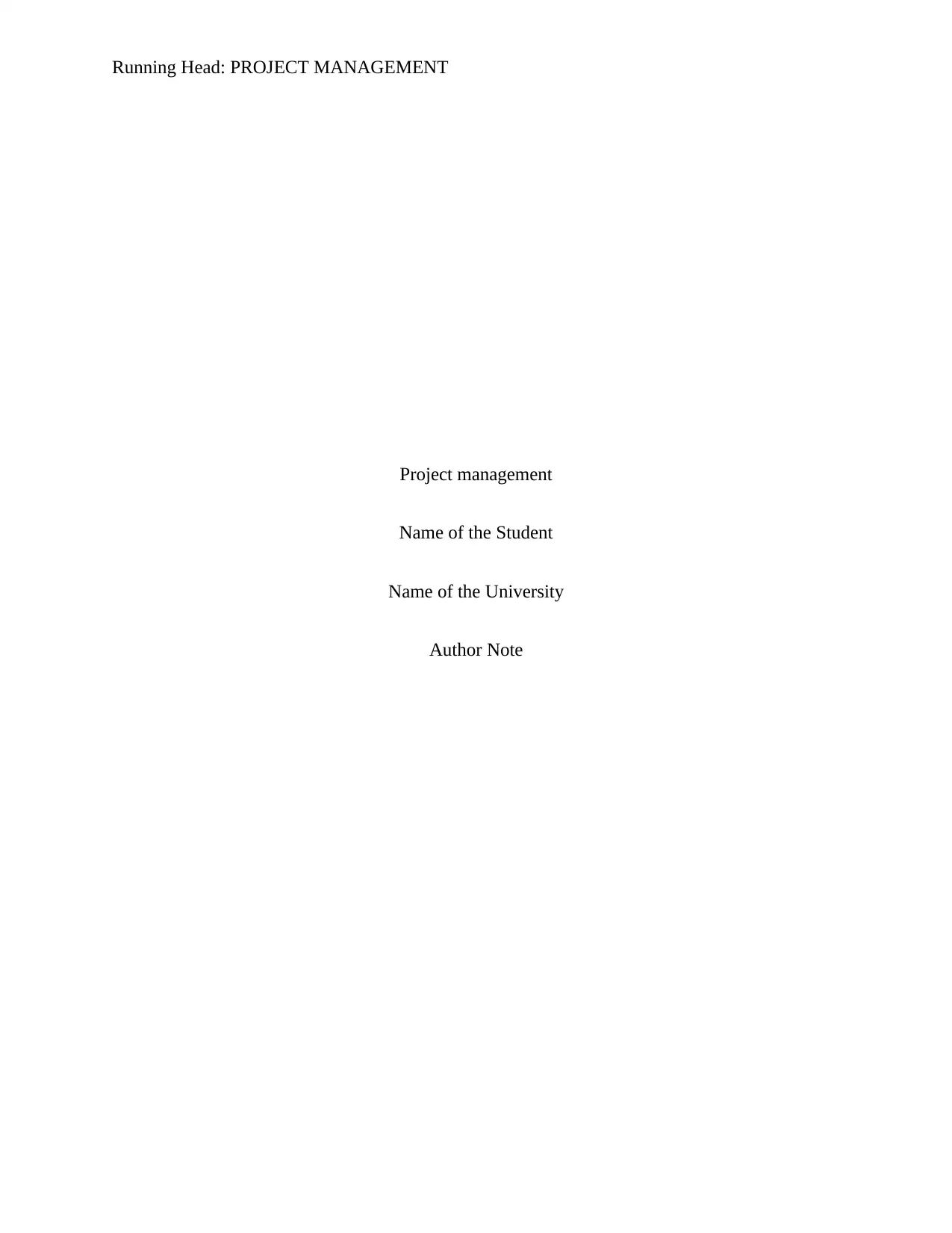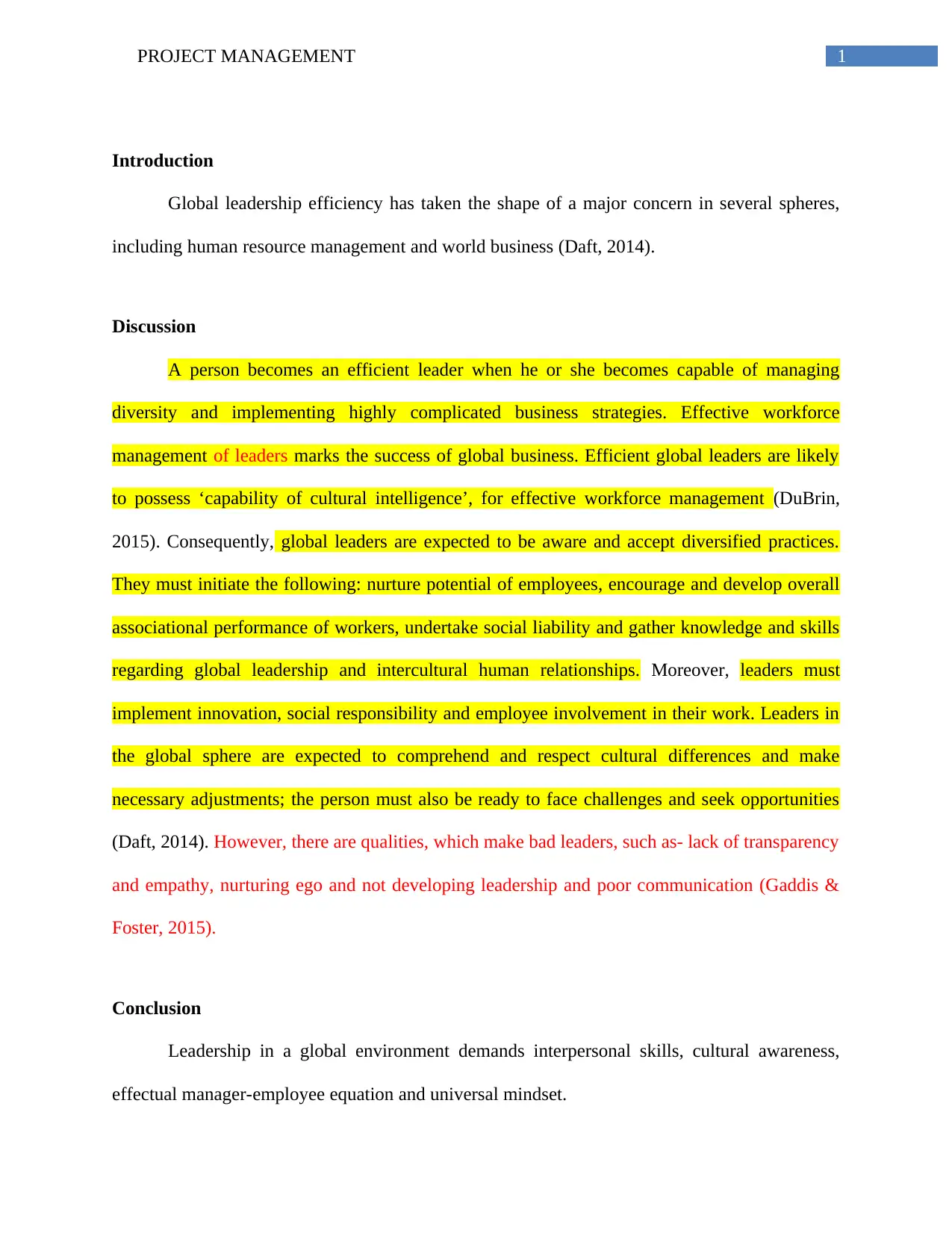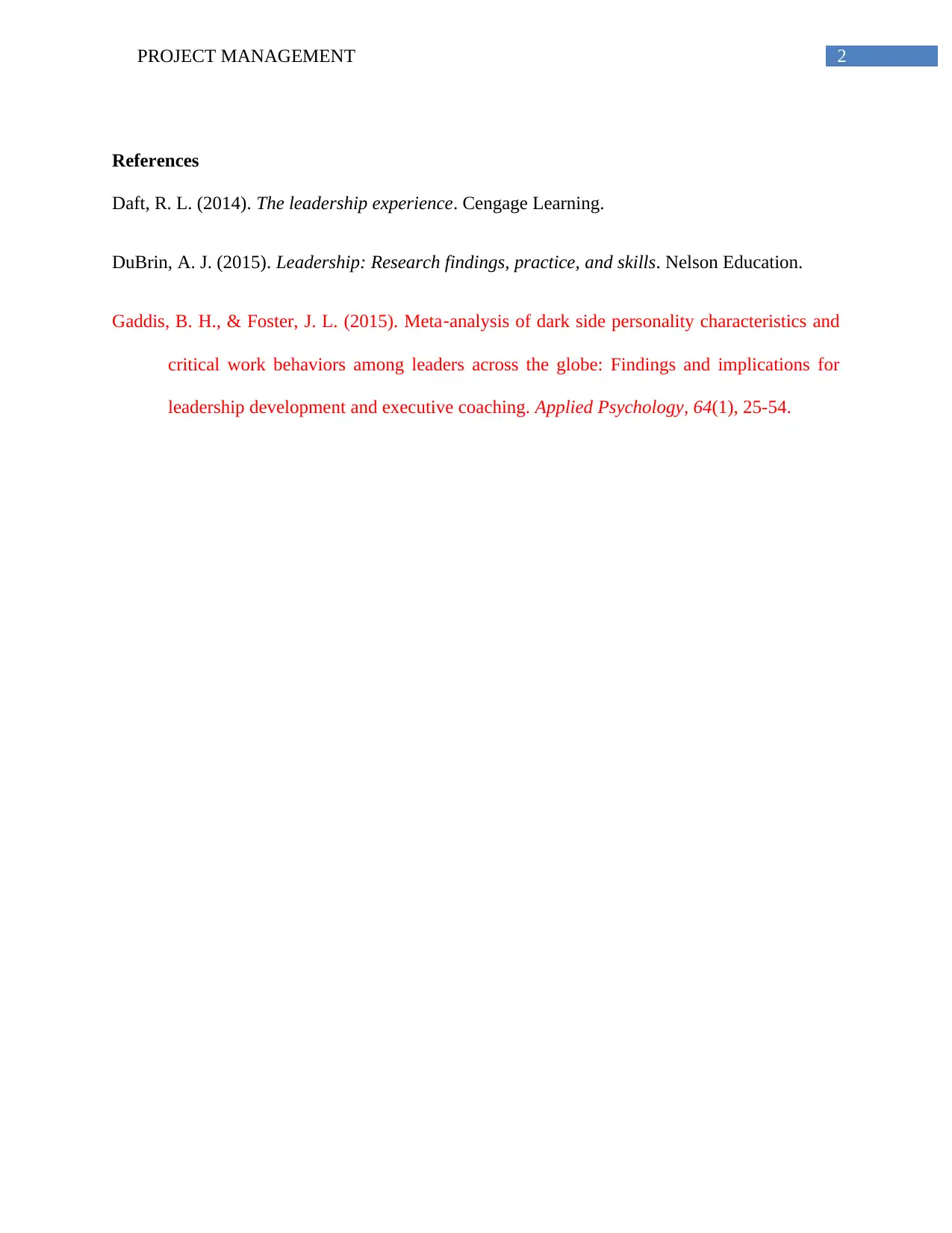Project Management: Leadership, Global Strategy, and Workforce
VerifiedAdded on 2021/04/22
|3
|354
|110
Report
AI Summary
This report delves into the critical aspects of project management, emphasizing the importance of leadership and its impact on global business strategy and workforce management. The report explores the significance of cultural intelligence, the need for leaders to adapt to diverse environments, and the importance of fostering employee development and engagement. It also highlights the qualities of effective leaders, such as transparency and empathy, while contrasting these with the characteristics of ineffective leadership. Furthermore, the report emphasizes the necessity of interpersonal skills, cultural awareness, and a global mindset for success in leadership roles within a global context. The report concludes by summarizing the key elements of effective leadership in project management and global business.
1 out of 3









![[object Object]](/_next/static/media/star-bottom.7253800d.svg)